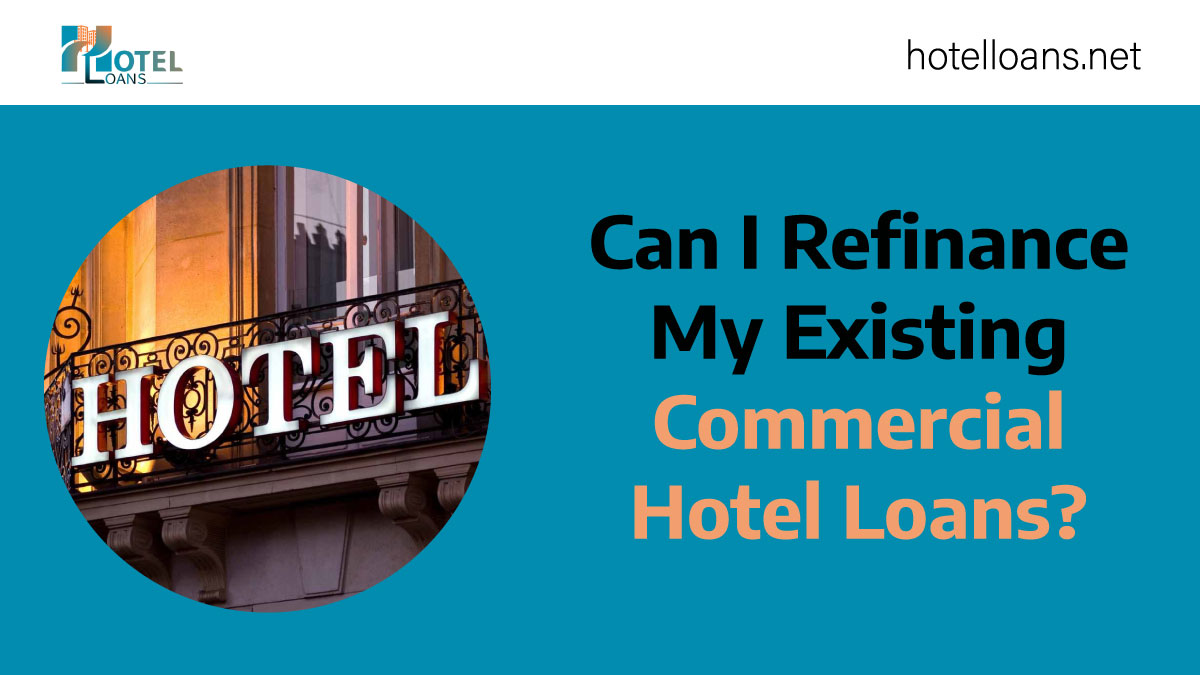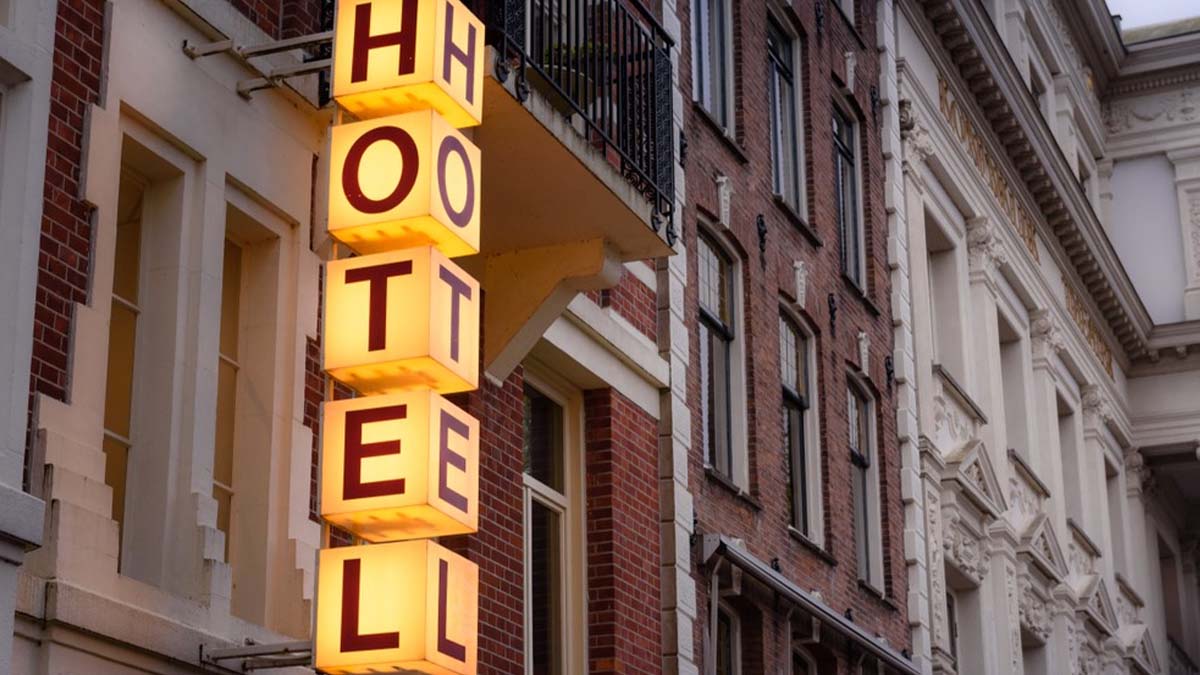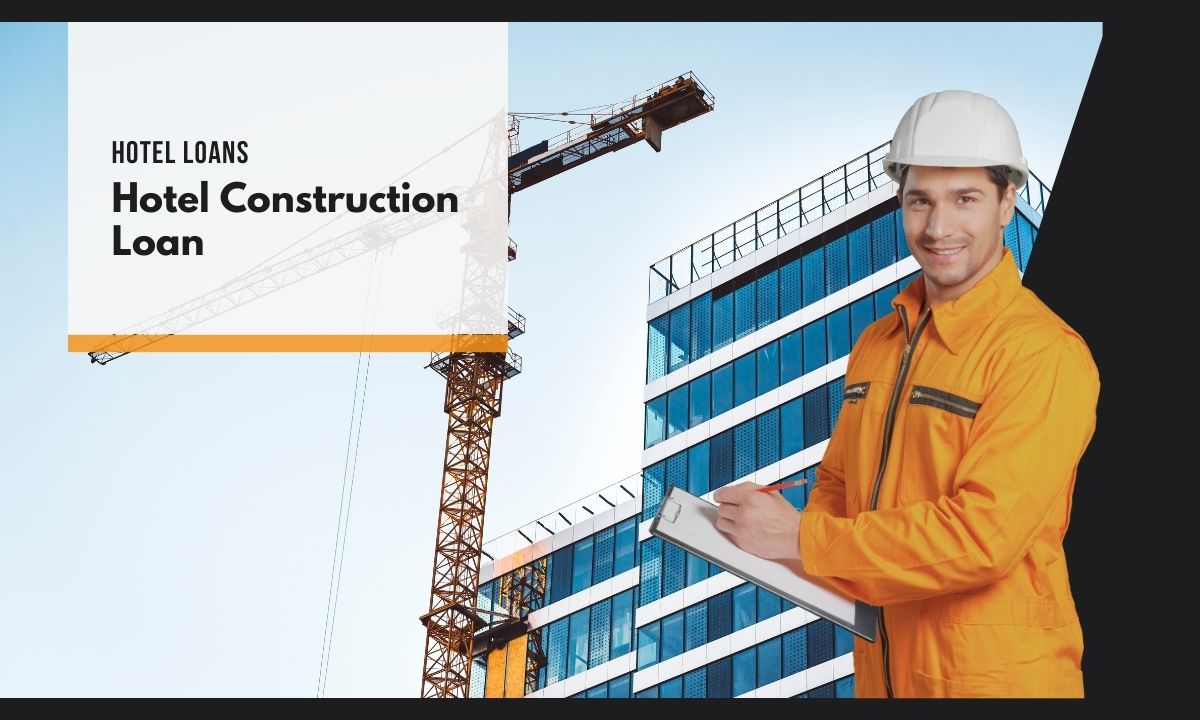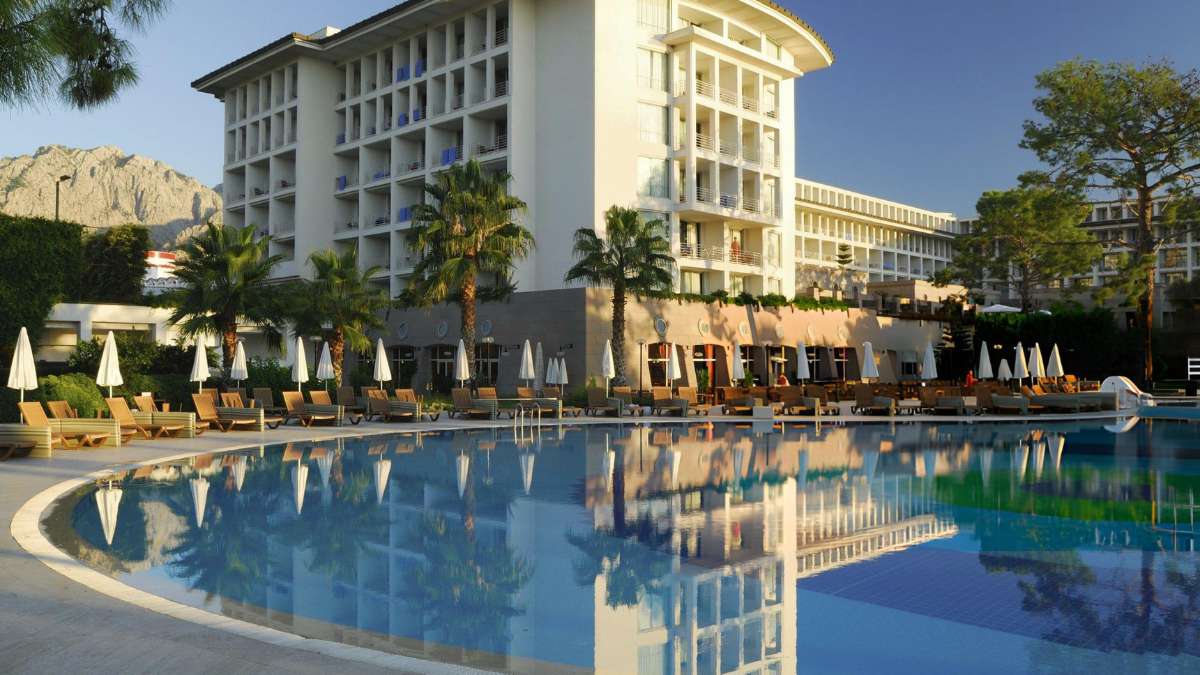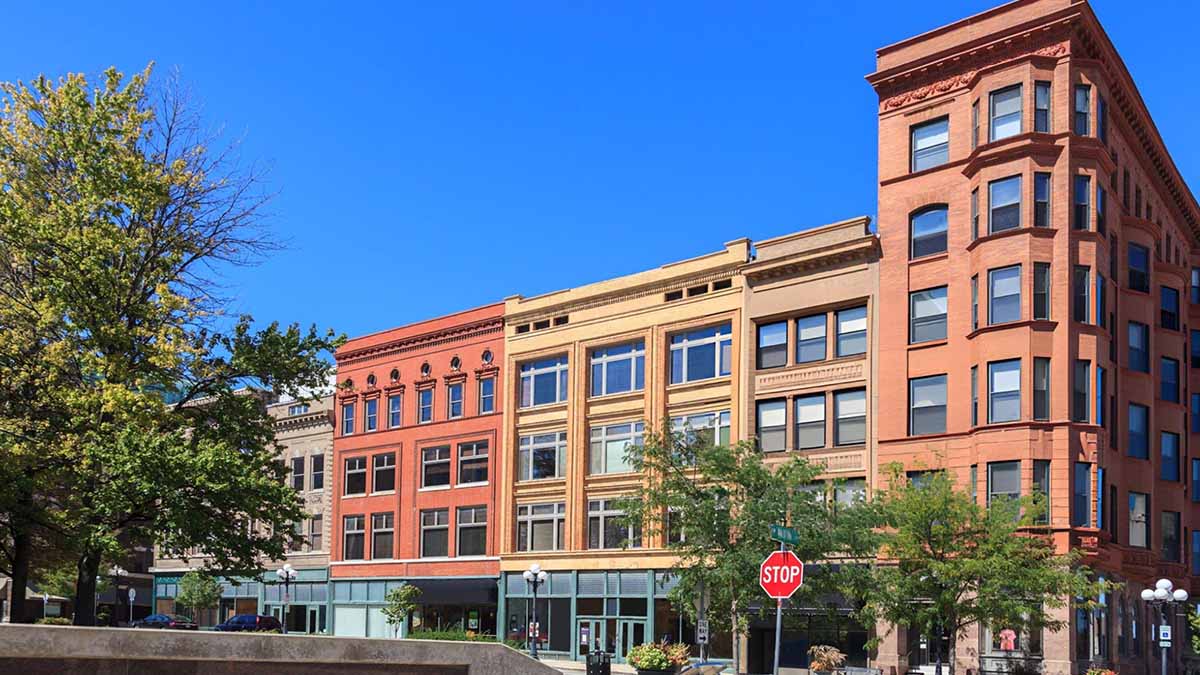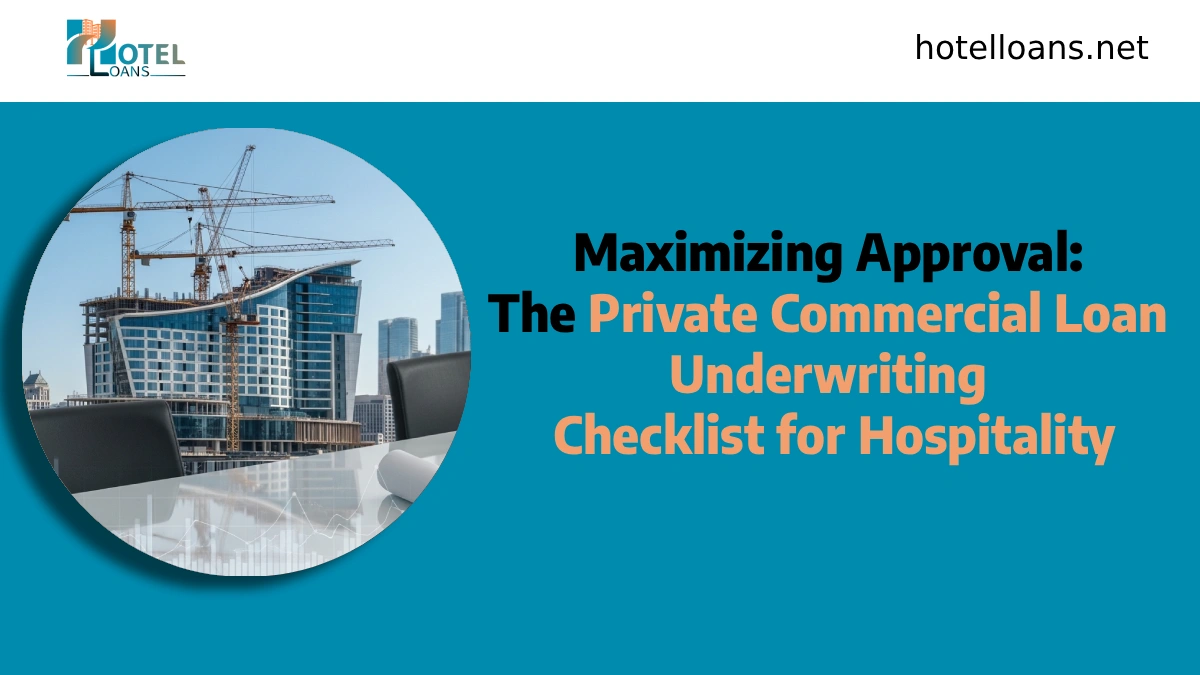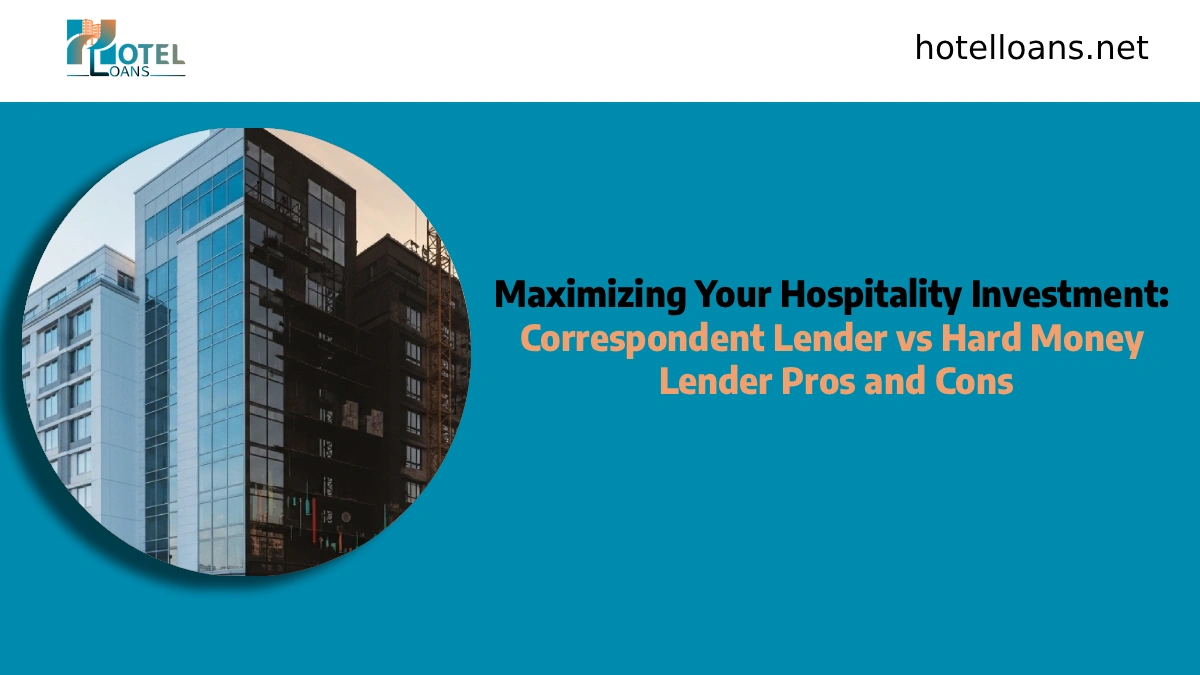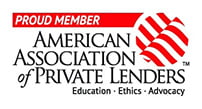Are you a hotel owner having trouble getting the money you need? The hospitality business is fast-paced and requires a lot of money. One of hoteliers’ most prominent problems is getting the money they need. Think about this: A recent study found that problems with money cause delays in almost 60% of hotel construction projects. This shows how vital easy-to-get and manageable financing is for the growth of any hotel business. This is where commercial hotel loans come in handy.
Commercial hotel loans are only meant to buy, build, renovate, or refinance hotel buildings. They are essential for the hotel business because they let owners purchase land. To get more cash, improve your guests’ experience, or reduce debt. Many projects would never get started without the proper commercial hotel loans. They are necessary for small, independent hotels and big, national chains. It can be hard to determine how to get a business hotel loan. To get the best funds, you need to know about the different types of loans, their terms and conditions, and who can get them.
Our site, HotelLoans.Net, can help you with that. We are experts at financing real estate and have helped many hotel owners like you find the best commercial hotel loans for their needs. Because we know a lot about the hotel business and have a network of lenders, we can help you with every step of the loan process.
This blog post aims to guide hotel owners in refinancing commercial hotel loans. We will discuss the pros and cons of refinancing, the main factors lenders consider, and the steps to get a good refinance. We aim to give you the information and tools to make smart choices about your hotel’s financial future.
Table of Contents
ToggleWhy Refinance Your Commercial Hotel Loans?
Refinancing your commercial hotel loan can be a smart way to improve your finances and take advantage of good market conditions. Not just lowering your monthly payment but also handling your debt in a way that helps you reach your long-term business goals. Refinancing your commercial hotel loans can help you in the following ways:
- Lower Interest Rates: One of the best reasons to refinance is to get lower hotel loan interest rates. Even a tiny drop in your interest rate can save you a lot of money over the life of the loan by lowering your monthly payments and giving you more cash flow. This is especially helpful when interest rates are changing constantly.
- Extend Loan Terms: When you refinance, you can extend the terms of your hotel loan. This will give you more time to pay back the loan, which can help you get out of debt faster, lower your monthly bills, and get more cash. Extending the loan terms can be very helpful if your hotel has short-term money problems or wants to grow.
- Merge Debt: When you refinance, you can combine several loans backed by your hotel property into one easier-to-handle loan. In the long run, this can lower your interest rates and make your financial responsibilities easier to meet.
- Access Capital: Refinancing can be a great way to get the money you need for repairs, additions, or other changes. It allows you to borrow more than you still owe on your loan, which could give you the money you need to improve your property and the guest experience and earn more.
- Improve Cash Flow: Refinancing can help your business’s cash flow. Your regular payments will decrease, or you’ll have more time to repay the loan. This extra money can be used to grow the business by marketing, adding staff, or keeping the building in good shape.
- Take Advantage of Changing Market Conditions: There are always changes in the interest rates and real estate market. Refinancing allows you to react to these changes and exploit good market conditions. For instance, interest rates have decreased since you took out your last loan. In that case, refinancing can help you lock in a lower rate. Additionally, if the value of your home has gone up, you can get a bigger loan.
Refinancing your commercial hotel loan is a big choice that must be considered carefully. To ensure you’re getting the best terms, look at your current finances, long-term goals, and the offers from different lenders.
Factors Affecting Commercial Hotel Loan Refinancing
A good refinance for your commercial hotel loan relies on several things. Some things help lenders decide if it’s safe to lend you money. It helps them determine if you can get the loan and what terms they will offer. These things are essential to know if you want to make a good loan application.
Property Performance
Lenders of hotel loans care a lot about how well your hotel is doing financially and how well it runs. Lenders use key performance indicators (KPIs) to judge how well your property is doing. Some of these are:
- Occupancy Rates: Many people want to stay at your hotel, meaning you’ll make money every night.
- Average Daily Rate, or ADR, is the price you charge for each full room. You are doing a good job of handling your sales and positioning yourself in the market.
- Revenue Per Available Room (RevPAR): RevPAR considers ADR and availability to determine a hotel’s profitability.
- Profitability: Banks and other lenders want to make a profit in the end. They will be more likely to give you a loan if you can show that you can consistently make money.
If you perform well on these KPIs, your refinancing options and hotel loan standards will change significantly. A building that performs well will be given better terms, such as lower interest rates and higher loan-to-value ratios.
Borrower Creditworthiness
Managing your personal and business money is essential to getting a loan. Lenders consider this to determine whether you’re a reasonable credit risk.
- Credit Scores: Having a good credit score makes it more likely that you can get a good loan.
- Debt-to-Income Ratio (DTI): The difference between your debt and income is shown by your DTI. When the DTI is low, lenders think there is less danger.
- Financial History: Loan companies will examine how you’ve handled your money, including bankruptcies, foreclosures, or other money problems.
To get a cheap refinance, your finances must be in good shape. Lenders need to know that you can handle and pay your debt.
Market Conditions
When lenders decide what to do, they look at how the hotel market is doing. Like:
- Supply and Demand: Consumers will improve if the market is balanced or undersupplied. Lenders are more likely to lend money when the market is strong, but it can be harder to get money when it is too big.
- Competition: The level of competition in your area impacts how well your hotel does and, in turn, your ability to get another loan. In a market with a lot of competition, you should show that you are better than the others in a big way.
- Economic Factors: Regarding money, interest rates, inflation, and economic growth are some of the most important things that affect loan choices. Lenders are likelier to give good terms when the economy is safe and growing.
To determine how current market trends affect your borrowing options, you need to know what those trends are. Keeping up with changes in the market can help you figure out when to get a loan.
Types of Commercial Hotel Refinancing Options
When refinancing your business hotel loan, you have several options, each with pros and cons. Understanding these different types of financing is essential to choosing the one that best suits your needs and situation.
Traditional Bank Loans
Commercial banks are a popular place to get commercial loans, and they offer many ways to refinance, such as:
- Fixed-rate loans: You know exactly how much you’ll pay each month because the interest rate stays the same throughout the loan period. This security helps you make a budget and keeps you safe from interest rate increases. Fixed-rate loans, on the other hand, may have higher interest rates at the start than variable-rate loans.
- Variable-Rate Loans: The interest rates on these loans change based on the market’s performance. They might have lower interest rates at first, but if rates go up, their bills will go up, too. When interest rates are low, variable-rate loans can be a good deal, but you need to monitor how the market is moving closely.
When applying for a hotel loan, banks usually have strict rules. For example, you may need good credit and a low debt-to-income ratio.
Non-Bank Lenders
Non-bank lenders offer different ways to get money, and their terms are often more open than traditional banks. Here are some usual choices:
- Bridge Loans: These short-term loans help you “bridge the gap” between selling your home and buying another. At the same time, you wait for long-term financing to become available. They usually have longer terms and higher interest rates than regular loans. Still, they can be helpful when time is of the essence.
- Hard money loans are backed by an asset, like your hotel property. They are usually used by people who can’t get traditional loans because of their credit or something else. These loans typically have high fees and interest rates, but they can be a good choice for people who don’t have many other options.
- Private Lenders: Private lenders are people or businesses that offer loans backed by real estate. Their terms and conditions can differ, so it’s essential to consider each one carefully.
People who don’t work with banks may be more willing to borrow from non-bank lenders than from banks. Even so, you need to know the strict rules of traditional banks to fully understand the terms and conditions, such as fees, interest rates, and due dates.
Government-Backed Loans
There are loan programs backed by the government that can help hotels refinance. These programs often have good terms and lower interest rates. Here are some examples:
- SBA 504 Loan: The SBA 504 loan program helps small businesses, like hotels, buy or sell real estate by giving them money. These loans usually have lower down payment requirements and interest rates that stay the same for a long time.
- DSCR Loans: With a DSCR (Debt Service Coverage Ratio Loan), the investor considers how much cash the property can bring to cover the loan payments. Investors often use them instead of standard bank loans.
- USDA Loans: Properties in rural areas can get USDA Loans, and in some places, hotel refinancing can be done with good terms.
Other government programs at the state or local level may help the hospitality business raise money. By looking into these programs, you may find suitable options for your hotel.
Government-backed loans often have specific requirements, so checking the rules and seeing if your hotel meets them is essential. These loans can be a great way to obtain suitable financing, especially for smaller hotels or hotels in specific places that are being targeted.
The Refinancing Process for Commercial Hotel Loan
There is a set process for refinancing your commercial hotel loan, from the first preparation steps to the final loan payment. Awareness of each step can help you go through the process more efficiently and improve your chances of getting a good loan.
Preparing for Refinancing
Getting your hotel and funds ready for refinancing is essential before you go to lenders. In this case:
- Check out your current financial situation: Look at your hotel’s vacancy rates, average daily rate (ADR), revenue per available room (RevPAR), and profit. Find areas where things could be better and make a plan to improve. Also, review the terms of your present loan and decide what you want to achieve by refinancing.
- If necessary, improve your creditworthiness: Check your credit score and fix any problems you find. Pay off your bills, correct any mistakes on your credit report, and show that you can handle your money well.
- Get the Documents You Need: Lenders will need a lot of paperwork, such as your business plan, property appraisals, tax reports, and financial statements (profit and loss statements and balance sheets). Getting these things together will speed up the process of applying for a hotel loan.
Finding a Lender
Finding the right lender is significant for a good refinance. Think about working with a reliable lender who has experience lending money to businesses in the hospitality industry. When picking a loan, things to think about are:
- The fees and interest rates are as follows: Compare rates and fees from different lenders to ensure you get the best deal.
- Loan Terms: Look at the loan terms, such as the length of the loan, the payment plan, and any penalties for paying it off early.
- Lender Experience: Choose a lender with a history of making hotel loans.
HotelLoans.Net has an extensive network of lenders specializing in the hotel and lodging business and vast experience financing real estate. We can connect you with the right lenders to help you find the best loan for your needs.
The Application and Approval Process
Usually, to get a hotel loan, you must fill out a complete loan application and send in all the necessary paperwork. The lender will start the screening process when they get your application. In this case:
- Appraisal of the Property: The lender will have an outside company determine how much your hotel is worth.
- A close look at your finances: The lender will carefully review your credit background and financial records.
- Underwriting: The lender will determine the riskiness of your loan by examining the property’s value, your financial situation, and the state of the market. A hotel loan approval process also considers the business’s performance, the creditworthiness of the borrower, and the market’s performance.
The lender may take a few weeks to review the loan thoroughly, and more information may be needed. Someone who wants to lend you money will send you a loan offer that explains the terms and conditions. As soon as you agree to the loan terms, the closing will start, and the money will be sent to you.
Tips for a Successful Refinancing
Refinancing your commercial hotel loan can be challenging, but following these tips will give you a better chance of success.
Maintain Strong Financial Performance
Good cash flow and consistent profits are essential for getting a good deal. Lenders want a sound financial success history that shows you can run your hotel well and make enough money to repay the loan. The best ways to make the most money are to maintain high occupancy rates, improve your ADR, and keep costs low.
Work with Experienced Professionals
Commercial hotel finance is hard to understand and can only be done by people with a lot of experience. Talking to financial advisors and real estate experts can help you make smart decisions and avoid mistakes that will cost you a lot of money. HotelLoans.Net is an expert in hotel financing, and they have a team of skilled pros who can help you with the refinancing process. It can help you determine your choices, find good loans, and get good terms.
Negotiate Favorable Terms
Negotiate with lenders to get the best terms for your refinance. Find out the current market interest rates and contrast the offers from various lenders. Ready to discuss your hotel’s good points and show it’s doing well financially. You can save a lot of money over the life of the loan by negotiating lower interest rates, longer loan terms, and possible early repayment choices. HotelLoans.Net can help you get a loan that fits your business goals using its extensive network of lenders and detailed industry knowledge.
Conclusion
Getting rid of your commercial hotel loan can help you meet your long-term business goals, make more money, and get the most out of your money. To be successful, you need to know about the different types of loans available, the main things that determine your status, and how to refinance. Taking care of your finances and working with knowledgeable professionals are essential steps to get good terms. There’s more to refinancing than just lowering your bills. It’s also about setting up your hotel to keep making money and grow.
We at HotelLoans.Net know how difficult it is to get a hotel loan, and we want to help you with the refinancing process. We can get you the best loans for your needs because we know a lot about the subject and have an extensive network of lenders.
Don’t risk the money your hotel has. Contact HotelLoans.Net right away to set up a meeting. We’ll help you figure out how to refinance your property so that it works better for you. Our main goal is for you to do well. Protect the future of your hotel by refinancing with security.
FAQs
What are the typical closing costs associated with refinancing a commercial hotel loan?
These are some of the costs that come with refinancing a hotel: appraisal fees, legal fees, loan origination fees, title insurance, and filing fees. These fees can be anywhere from 2% to 5% of the total loan amount, so you need to get them into your refinancing estimates. It’s a good idea to ask each lender you’re considering for a thorough list of all the closing costs you can expect.
How often can I refinance my commercial hotel loan?
You are free to refinance as many times as you want. Still, most lenders will want to see that your hotel has had a steady, strong performance before considering refinancing it. The time of a refinance can be affected by the state of the market, your finances, and the terms of your current loan. Some loans may have fees for paying them off early, making it impossible to refinance after a specific time.
Can I refinance my hotel loan if I’ve had financial difficulties?
Refinancing may be more complex if you’ve had money problems, but it’s not always impossible. Lenders will look at the issues, how long ago they happened, and what you’ve done to get your finances back on track. In these cases, working with a specialized lender who knows the hospitality business and can consider the unique circumstances of hotel owning can be helpful. You should be ready to explain thoroughly and show a straightforward way to get your money back.
What is the loan-to-value (LTV) ratio, and how does it affect my hotel refinance?
LTV stands for “loan-to-value.” It shows how much of a loan you have compared to how much your hotel property is worth. Lower LTV ratios usually mean better loan terms, like lower interest rates. You’re borrowing a smaller portion of the property’s value. Lenders will reevaluate the value of your home when you refinance, and your new LTV ratio will be a big part of their choice.
How long does the entire hotel loan refinancing process typically take?
The time it takes to refinance a commercial hotel loan depends on several things, such as how complicated the deal is, how the lender works, and how quickly you can provide the required paperwork. From the first application to the final loan closing, the process usually takes 30 to 90 days. Getting things in order and responding quickly to loan requests can speed up the process.
